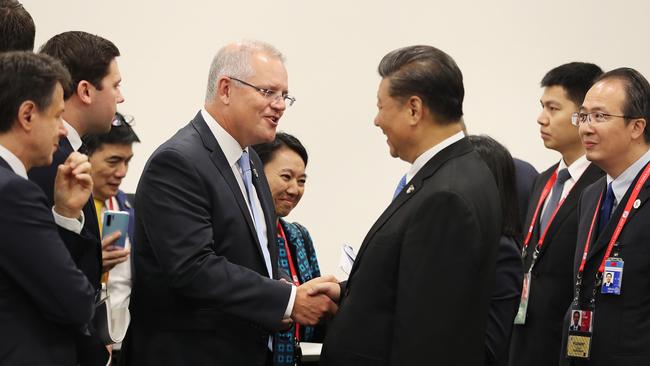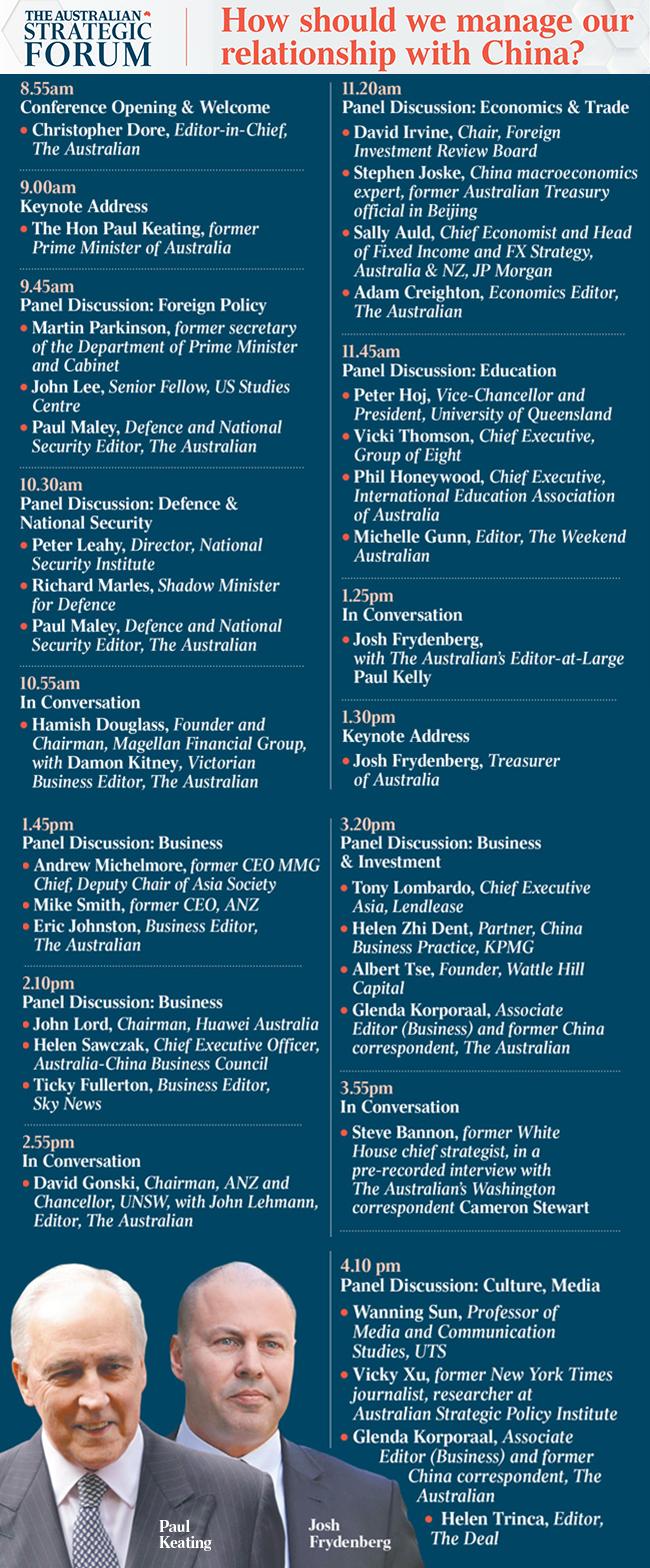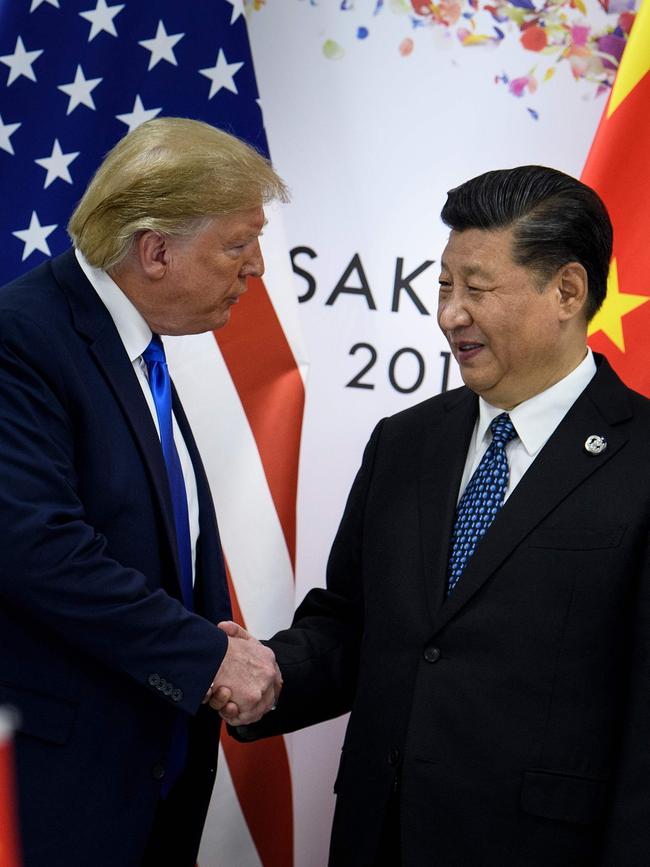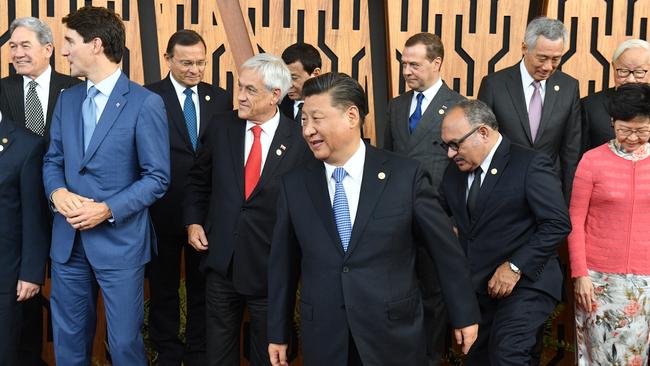We benefit as awakened China moves the world

“To get rich is glorious,” said Deng Xiaoping as he set China on a pathway to economic reform and openness.
After the devastation of the Great Leap Forward and Mao’s Cultural Revolution, Deng’s “socialism with Chinese characteristics” saw the lifting of price controls, the privatisation of assets and a more welcoming approach to foreign investment.
The subsequent transformation of the Chinese economy has been remarkable.
In the two decades prior to Deng assuming the leadership in 1978, the economy had grown by only 2½ times. In the two decades after 1978 it grew by 21 times.
Even as the annual growth rate has more than halved from a peak of 14.3 per cent in 2007 to around 6 per cent, the Chinese economy is growing off a larger base. It is adding an economy the size of Spain to itself each year.
READ MORE: Australia puts China in cold on human rights | Former ASIO boss calls for ‘new balance’ with Beijing | Outspoken MPs banned from visiting China | Rowan Callick on the Great China Conundrum | Ticky Fullerton on how China’s big problem is saving our bacon | Editorial — Cool heads, smart policy will balance China ties
Real GDP per capita in China is 25 times higher than it was in 1980, helping to lift more than 800 million people out of poverty. China’s share of global GDP has also risen to around 20 per cent today.
Already the largest economy in the world on a purchasing power parity basis and second to the US on a market exchange rate basis, it’s important to recognise that China does not see its economic strength as a historical first.
As Henry Kissinger has pointed out, China was the largest economy in the world for 1800 of the last 2000 years, only to be surpassed by the West with the advent of the Industrial Revolution.
Australia, like so many other nations, has played a part and been a great beneficiary of China’s rise. China is the No 1 trading partner for more than 50 countries, as it is for Australia, and in the top three trading partners for more than 130 countries.
Our two-way trading relationship is more than $200bn a year, with a third of our exports going to China. Over a million Chinese tourists annually visit our shores and 200,000 Chinese students study in our educational institutions.
-
Strategic Forum agenda

-
It’s a mutually beneficial relationship. In 2018-19, our iron ore exports, 80 per cent of which go to China, help create enough steel to build the equivalent of 10,000 Sydney Harbour Bridges.
Chinese foreign investment has also increased in Australia over time. Between 2010-11 and 2017-18, over $268bn worth of investments have been given approvals. Just as one in five Australian jobs are related to trade, one in 10 jobs are with businesses that have benefited from direct foreign investment. The evidence is overwhelming; trade and investment equals more jobs and Australia is stronger as a result of its economic relationships with China and the world.
However, China’s rise is not without its challenges. As Napoleon warned nearly two centuries ago, “China is a sleeping giant. Let her sleep, for when she wakes she will move the world.” China is now very wide awake.

The trade tensions between China and the US have generated uncertainty that is testing the resilience of the global economy.
With the IMF estimating trade tensions could reduce global GDP by as much as 0.8 per cent by 2020, the negative impact on trade volumes, capital inflows and investment decisions has been real.
Against the backdrops of these tensions, Australia’s message privately is the same as our message publicly. Trade wars have no winners, just losers.
Differences are best resolved by negotiation and a commitment to a rules-based, transparent trading system.
Australia acknowledges the legitimate issues raised by the US including industrial subsidies, forced technology transfers and the protection of intellectual property.
However, these issues need to be seen through the prism of a broader relationship and a recognition that international co-operation has served us well.
The relationship between the US and China is so significant that it should not be allowed to be framed as a zero sum game, where in order for one to gain, the other must lose. Decoupling the US and China economies would carry an enormous price.
Some commentators have sought to draw an analogy between US-China relations today and the rivalry between the US and the Soviet Union during the Cold War.
This is misplaced.

As Harvard Professor Joseph Nye points out, with three million Chinese tourists visiting the US every year, 350,000 Chinese students studying in the US and a two-way trade relationship worth over $US500bn, the level of interdependence between the US and China is so much broader and deeper than anything that was seen during the Cold War.
There are unresolved tensions but they need not derail the broader relationship.
China and her growing role in the world is not going away.
As the Prime Minister has said, Australia does not need to choose between the US and China. The US is our critical long-term ally with whom we have forged a friendship based on shared values and history.
China is an important partner as well but we both acknowledge there are important differences.
We are best served by being clear and consistent in the policy positions we take in accordance with our values and national interest. This may see us disagree at times with China on human rights, foreign investment and other matters but by being clear and consistent our differences need not undermine this important relationship.



This is an edited extract of a speech Treasurer Josh Frydenberg will deliver at The Australian Strategic Forum in Sydney today.